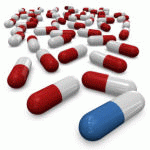Pharmacology
|
2 june 2023 07:17:58 |
| Marine Drugs, Vol. 21, Pages 342: Species-Specific N-Glycomes and Methylation Patterns of Oysters Crassostrea gigas and Ostrea edulis and Their Possible Consequences for the Norovirus–HBGA Interaction (Marine Drugs) |
|
Tweet Noroviruses, the major cause of acute viral gastroenteritis, are known to bind to histo-blood group antigens (HBGAs), including ABH groups and Lewis-type epitopes, which decorate the surface of erythrocytes and epithelial cells of their host tissues. The biosynthesis of these antigens is controlled by several glycosyltransferases, the distribution and expression of which varies between tissues and individuals. The use of HBGAs as ligands by viruses is not limited to humans, as many animal species, including oysters, which synthesize similar glycan epitopes that act as a gateway for viruses, become vectors for viral infection in humans. Here, we show that different oyster species synthesize a wide range of N-glycans that share histo-blood A-antigens but differ in the expression of other terminal antigens and in their modification by O-methyl groups. In particular, we show that the N-glycans isolated from Crassostrea gigas and Ostrea edulis exhibit exquisite methylation patterns in their terminal N-acetylgalactosamine and fucose residues in terms of position and number, adding another layer of complexity to the post-translational glycosylation modifications of glycoproteins. Furthermore, modeling of the interactions between norovirus capsid proteins and carbohydrate ligands strongly suggests that methylation has the potential to fine-tune the recognition events of oysters by virus particles. |
| 66 viewsCategory: Biochemistry, Molecular Biology, Pharmacology |
 Marine Drugs, Vol. 21, Pages 340: Microalgae, Seaweeds and Aquatic Bacteria, Archaea, and Yeasts: Sources of Carotenoids with Potential Antioxidant and Anti-Inflammatory Health-Promoting Actions in the Sustainability Era (Marine Drugs) Marine Drugs, Vol. 21, Pages 340: Microalgae, Seaweeds and Aquatic Bacteria, Archaea, and Yeasts: Sources of Carotenoids with Potential Antioxidant and Anti-Inflammatory Health-Promoting Actions in the Sustainability Era (Marine Drugs)Marine Drugs, Vol. 21, Pages 343: Fish-Derived Protein Hydrolysates Increase Insulin Sensitivity and Alter Intestinal Microbiome in High-Fat-Induced Obese Mice (Marine Drugs) 
|
| blog comments powered by Disqus |
MyJournals.org
The latest issues of all your favorite science journals on one page
The latest issues of all your favorite science journals on one page



